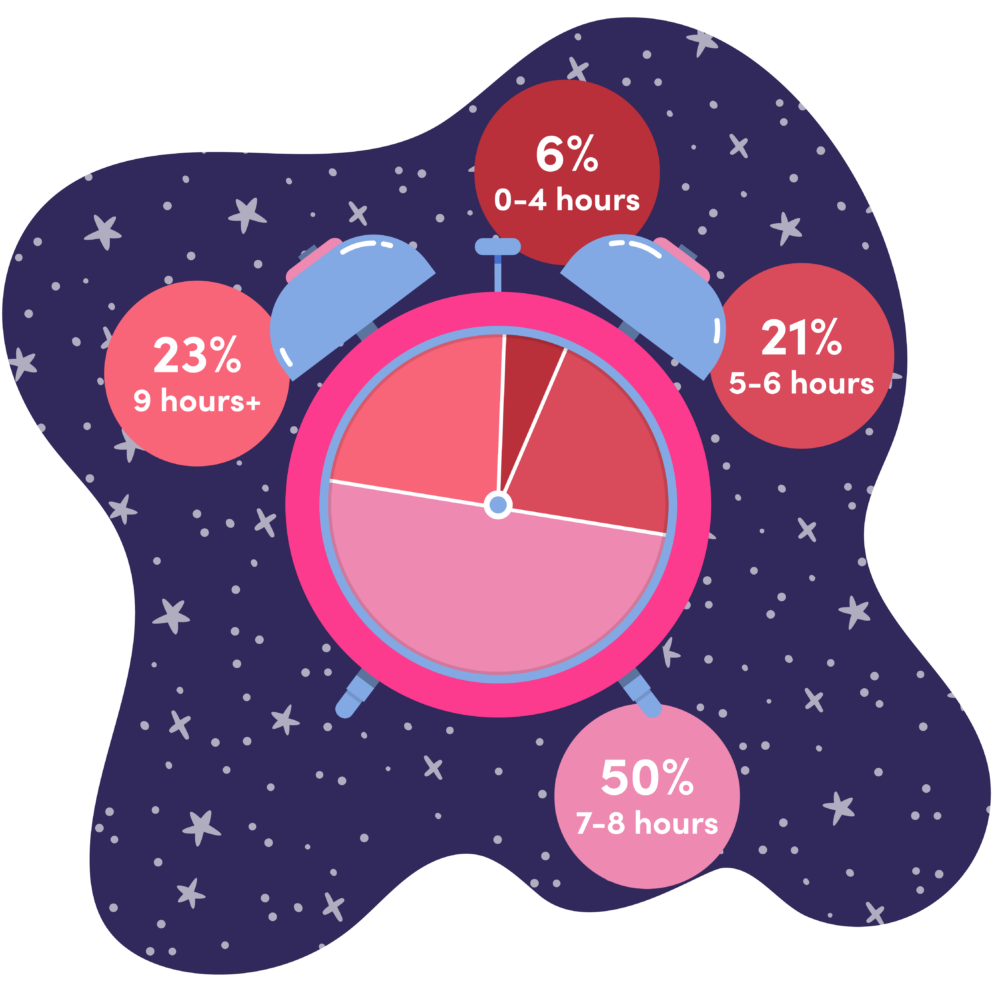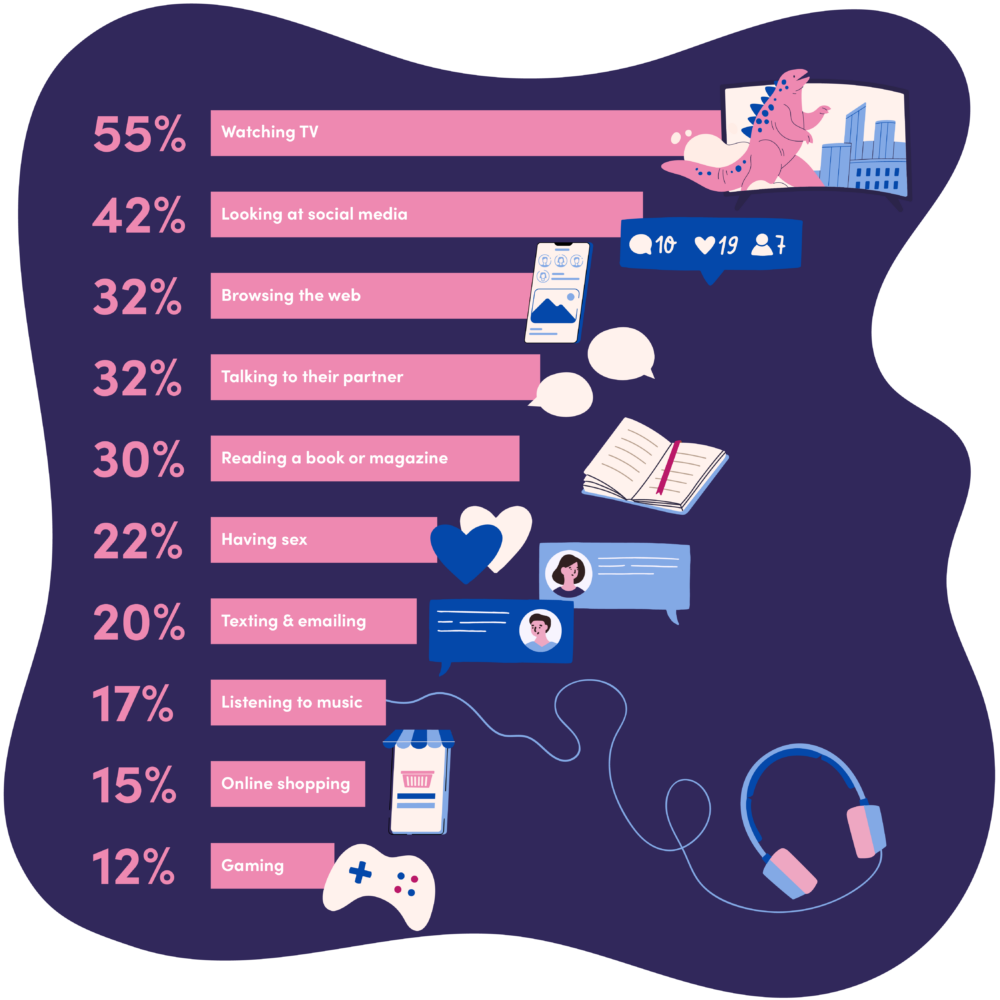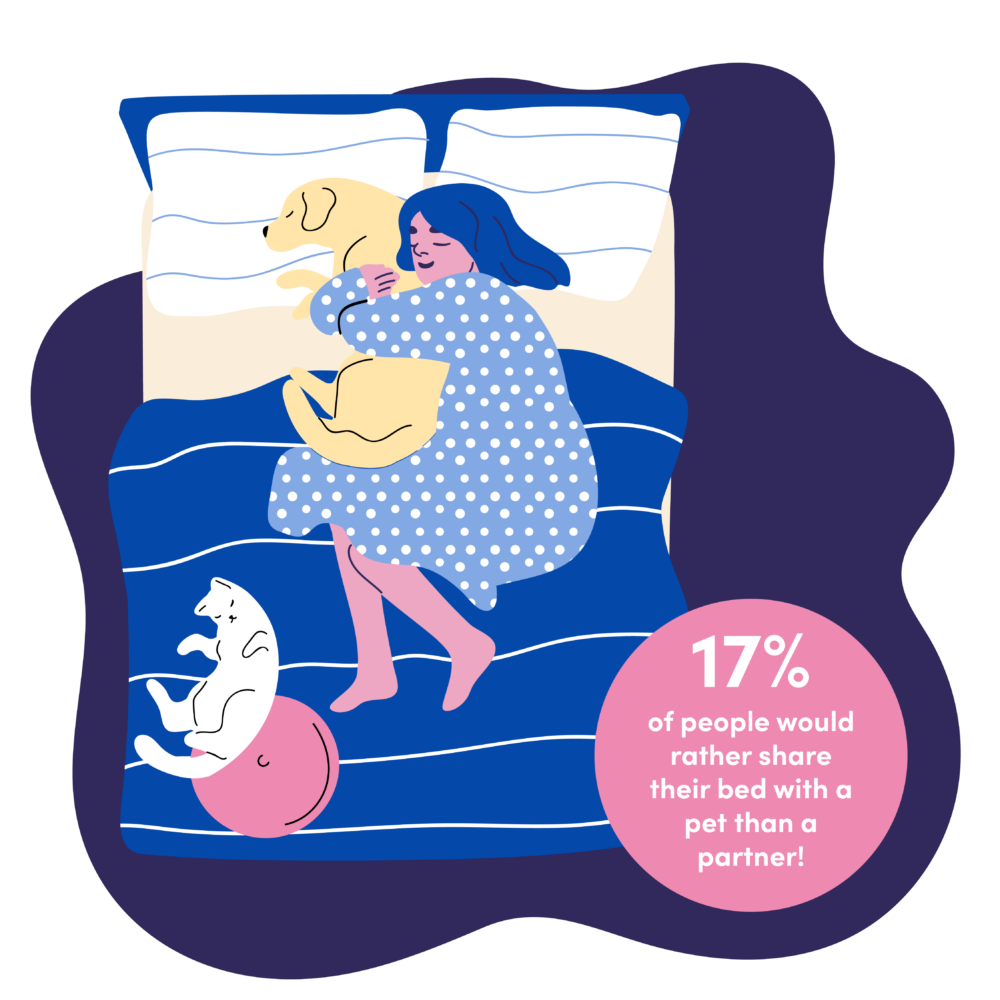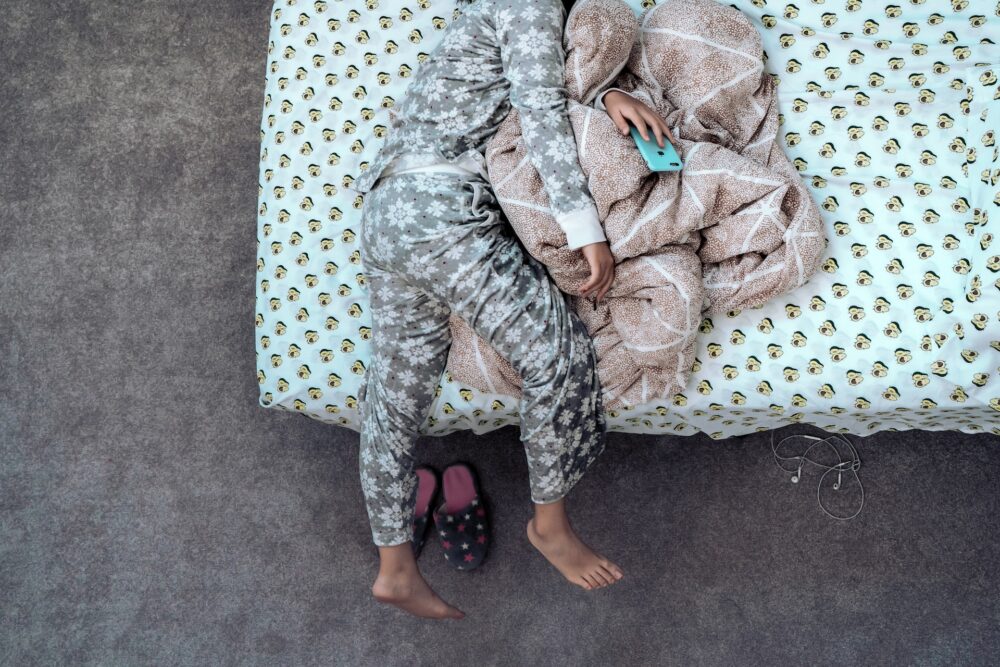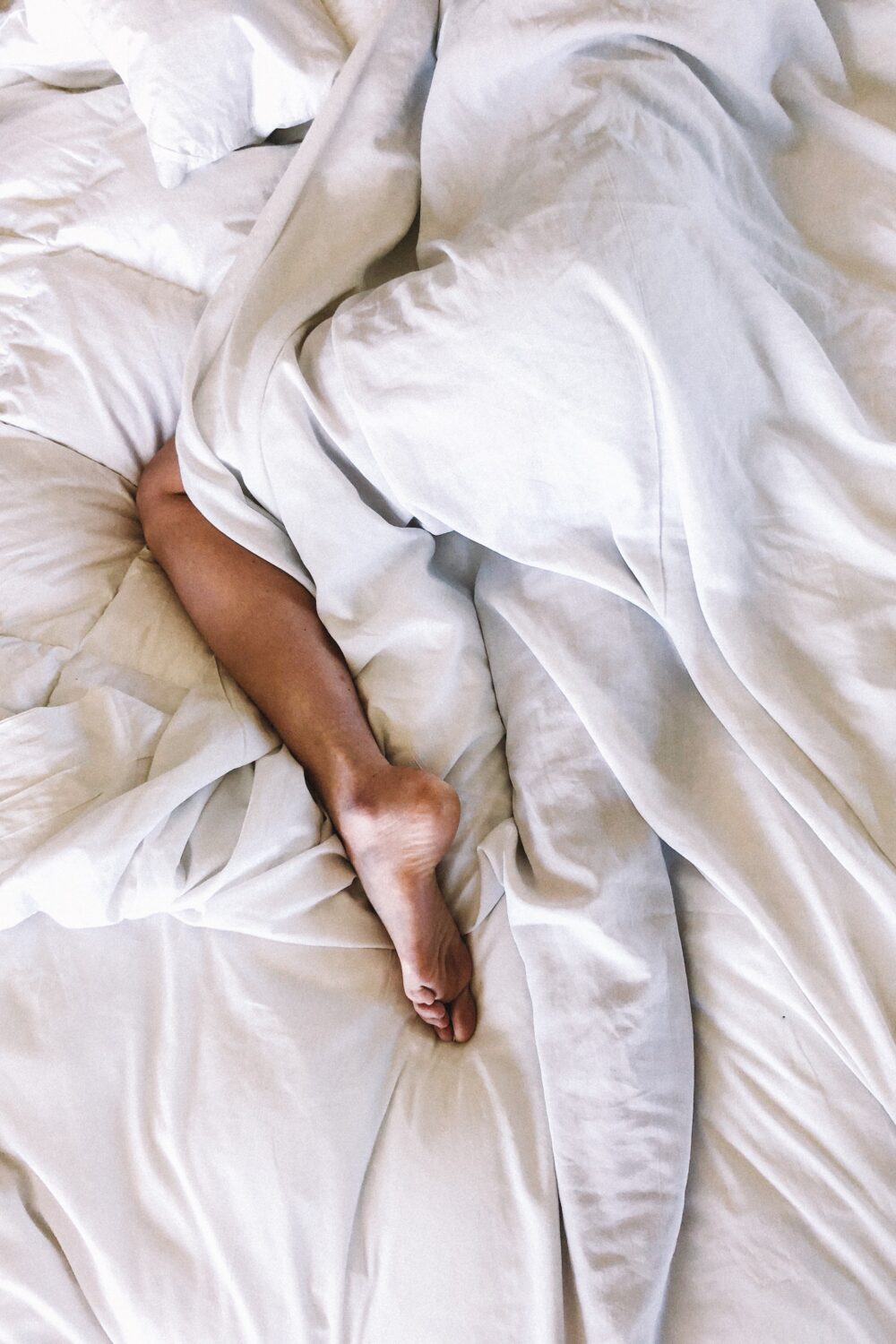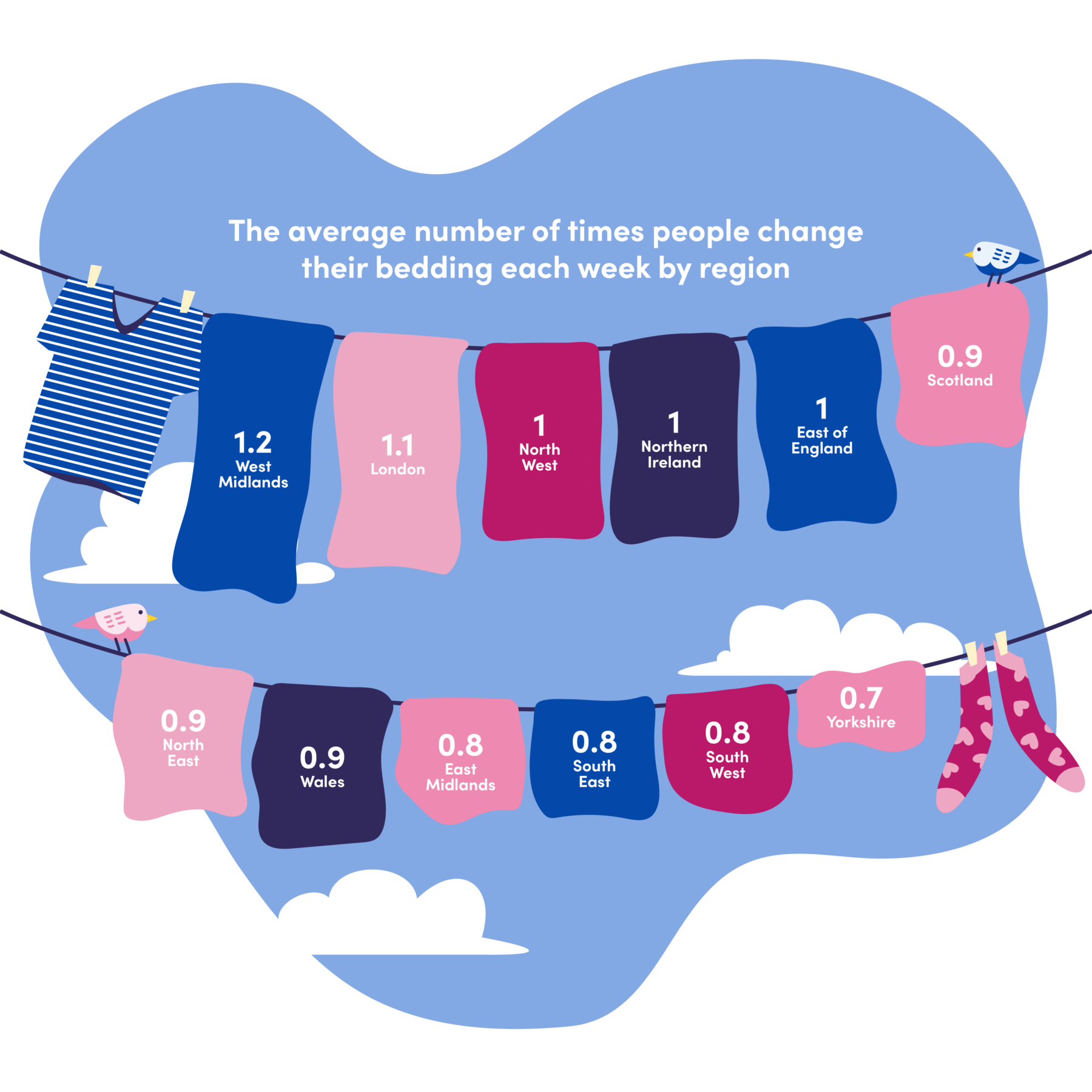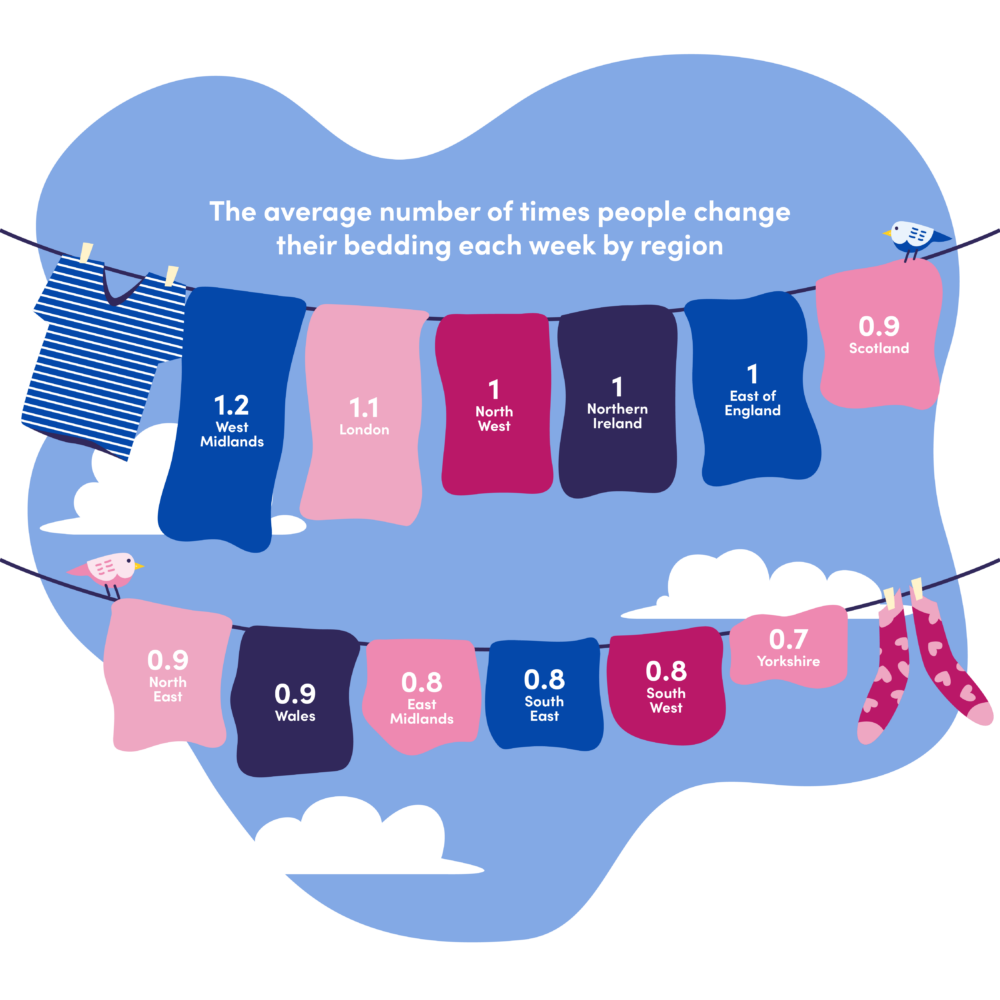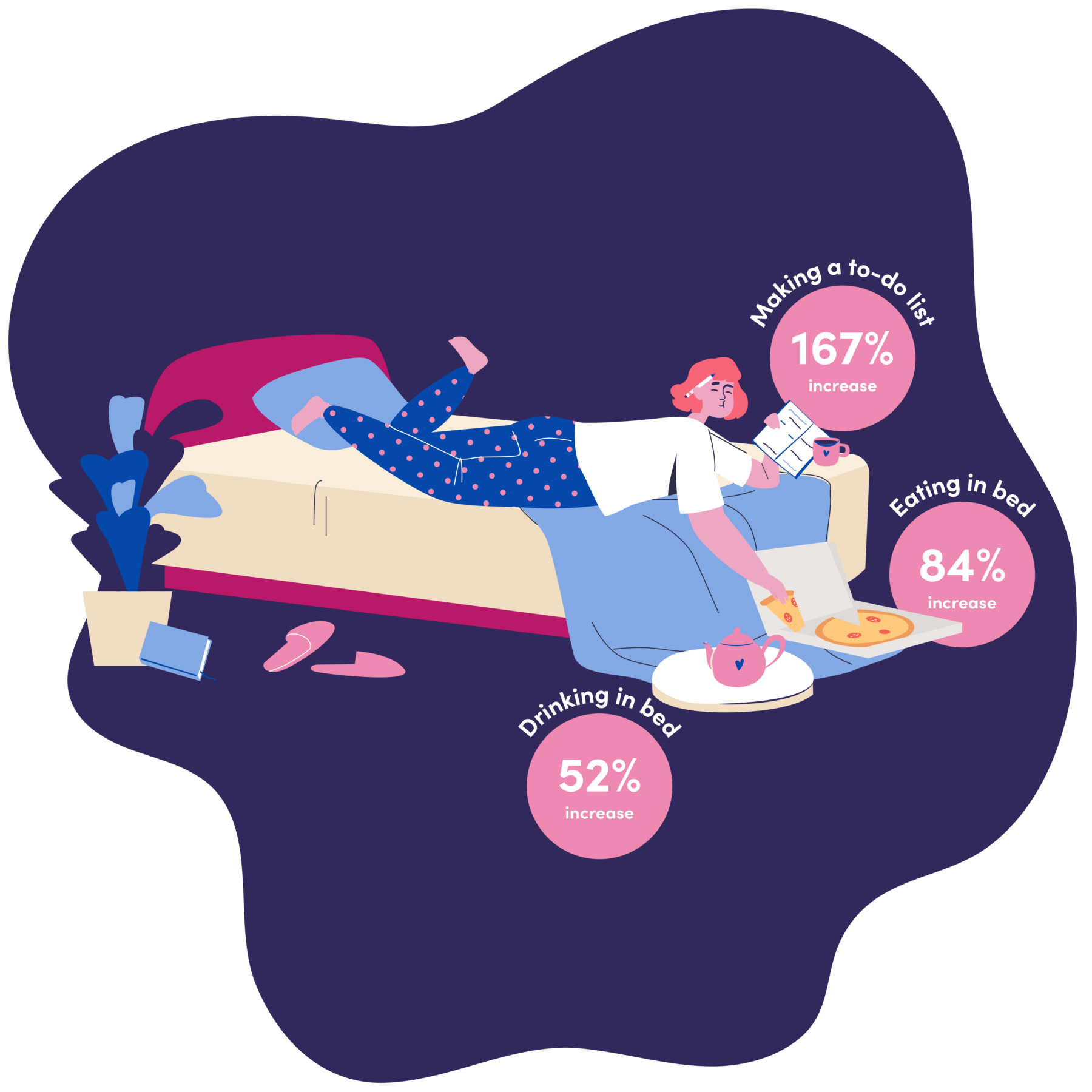We found people now spend on average 8% longer in bed compared to 2016. Not only that, but the average amount of time spent sleeping like a log has increased by 6%. As a nation, we are spending more and more time in our bedrooms.
We looked into what we’re doing with our time here and found:
- Practising calming techniques has increased by 88.4%
- Taking note of anxieties has increased by 104%
- And spending our evenings drawing and doodling has increased by 93%
Next, let’s look at disturbed sleep, as the number of people reporting it has increased by 9.4% since 2016. An increase of 66% of participants said this is because of the use of mobile phones. And 25% more said it was due to worries about work.
The amount of people who wake up during the week because they are uncomfortable has increased by 78%, with a 550% rise in the number of individuals who report waking up more than 12 times each week.
We also found a 67% decrease in people waking up feeling refreshed in the morning.

